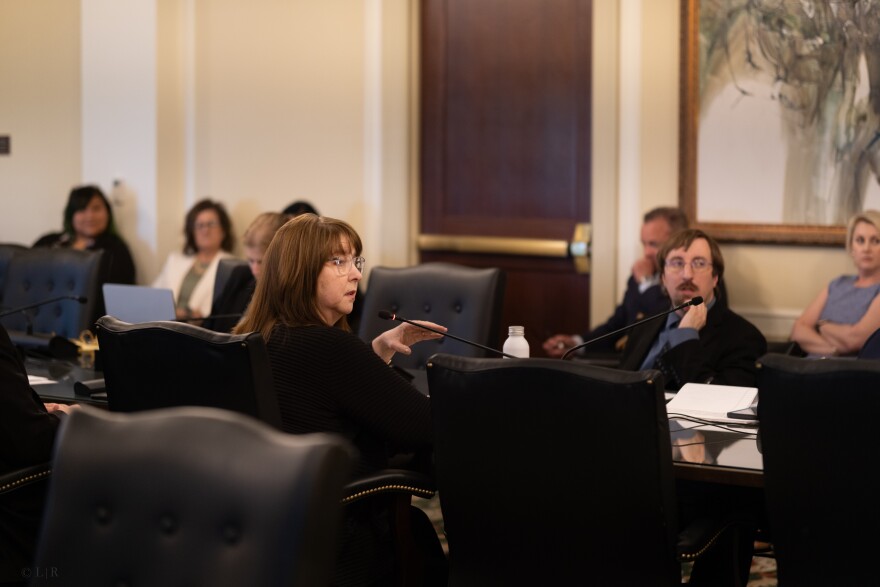District Attorneys Matthew Ballard and Carol Iski were sued by the Department of Justice in December for prosecuting state criminal cases involving defendants who are citizens of Indigenous nations.
The pair's judicial districts encompass five counties in the eastern part of the state, all of which are within the Muscogee and Cherokee Nations. The DOJ argues the pair is violating tribal sovereignty rights.
Jurisdictional clashes have arisen since the landmark McGirt v. Oklahoma case, with multiple federal lawsuits being filed within the last year due to legal misinterpretation and confusion.
A disputed part of the case law is that the state of Oklahoma does not have the authority to prosecute Native Americans who commit crimes on reservations. Instead, jurisdiction is the sole responsibility of the tribes. The authority is passed to the federal government in severe or major crimes.
The prosecutors argue they should have jurisdiction.
"This was a fight that was brought to us," Ballard said. "But it's one that we believe in, and it's one we know is not going away."
The root of the conflict

Ballard, who serves Oklahoma's 12th Judicial District, says the state's jurisdiction to prosecute certain offenders for egregious state crimes is at stake, and without more money for their legal defense, the case is a sure-fire loss.
Losing, he said, means child porn producers, rapists and drug traffickers arrested in swathes of Eastern Oklahoma would serve minimal sentences for harsh charges under tribal jurisdiction, before being released back into Oklahoma communities. And that's even though tribes are willing to help the local district attorneys punish people for violating state laws, he said.
"The problem is that tribes are limited to a maximum of three-year sentence," he said. "They can be stacked per count up to a maximum of nine years."
If prosecuted by the state, Ballard said, charges for things like rape and the production of child porn can carry life sentences, and sometimes, the death penalty, which he said he prefers in such cases.
Tribes have argued state prosecutors are stepping on their sovereignty. Especially since the U.S. Supreme Court reaffirmed tribal jurisdiction over major crimes in its 2020 McGirt v. Oklahoma decision.
And the only two Democrats in the joint committee, Sen. Mary Boren from Norman and Rep. Ajay Pittman from Oklahoma City, seemed to agree, based on their questions for Ballard.
"Isn't that… the essence of sovereignty?" Boren posed to Ballard. "That nations get to decide what prosecution parameters that they want?"
The District Attorney said his stance is not about questioning tribal sovereignty, but ensuring the sovereignty of Oklahoma. There's high-court precedent for that position, too, Ballard said.
"I am absolutely not advocating that the tribes don't have jurisdiction," He said. "I believe that they do. However, what the Supreme Court recently said in Castro-Huerta, what our own Court of Criminal Appeals has recently said, is that the state has jurisdiction as well."
The 2022 Oklahoma v. Castro-Huerta Supreme Court decision Ballard refers to has forced state and tribal governments to share criminal jurisdiction in certain cases.
But, Ballard says, differences in state and tribal statutes, and among their law enforcement agencies, regarding who can and should prosecute tribal citizens in indigenous territories have made for a compromise in the public safety of all Oklahomans, tribal citizens or not.
Democrats in the committee said lapses in public safety are caused by a need to collaborate better within the Supreme Court precedent already set. Not to fight the federal government or the tribes with Oklahomans' tax dollars to try and shift jurisdiction back in favor of the state.
Boren said tribes have treaties with the federal government, not Oklahoma, which means the federal government has the ultimate jurisdiction and authority to negotiate with the tribes on this matter. Ballard refuted this with reference to some footnotes in the Castro-Huerta opinion explaining that federal law doesn't preempt shared state-tribal jurisdiction, but instead leaves it to "other areas of federal law."
"And that's what we're litigating now," Ballard said. "That's the reason the federal government believes that they have jurisdiction, and we don't, whereas the state is very firm that we believe that the state has jurisdiction over all crimes."
Why lawmakers decided to provide funds

Republicans in the committee would rather help their local prosecutors than fold to the federal government and tribes, at least on this matter.
Okmulgee Republican Rep. Scott Fetgatter co-chairs the committee and leads the Tribal & External Affairs efforts in the House. He said after months of looking into the issue, he's worried about what not supporting the district attorneys' defense could mean for Oklahoma's broader public safety, but also worried about the cost of litigation.
"I asked a lot of questions, and I'm not going to lie to you and tell you that it was roses and rainbows," Fetgatter said. "It was very difficult and challenging to get questions answered."
The fact remains, he said, that Ballard and Iski have been sued by the Department of Justice, and they do not have the money to defend themselves. Using taxpayer dollars for them to hire outside counsel is the only way to keep them in the fight.
The legislature has already set money aside for fighting the federal government and Oklahoma's tribes in court. The total allocated for "state sovereignty and extraordinary litigation" in the Fiscal Year 2026 state budget is $10 million.
And while that money is in a revolving fund run by the state attorney general's office, the local DAs came specifically to the state-tribal relations committee because it's the group of lawmakers controlling those dollars.
"That money has already been allocated," Ballard explained to the committee. "It's already there. And this committee obviously controls oversight of that…just as a practical matter, you know, my office does not have the funds to do this."
"If this goes to the 10th circuit, to the Supreme Court, my office will be unable to do it."
In his final statement before adjourning, Fetgatter said he's concerned with how fast the district attorneys have spent the money they already have.
"As of today, there has been $175,000 spent since January," he said. "I'm told that it's going to cost approximately $500,000. If it goes to the Supreme Court, it costs somewhere in the neighborhood of $1 million. We're a couple of months in here, and we've already burned through $175,000. I don't know that these estimates are accurate."
The committee voted to approve an initial $100,000 with a party line 7-2 vote. Fetgatter said there is still more to know before he feels right committing any more money.
Copyright 2025 KOSU







